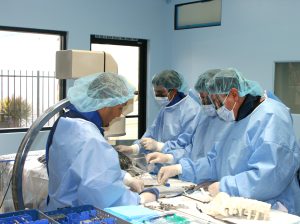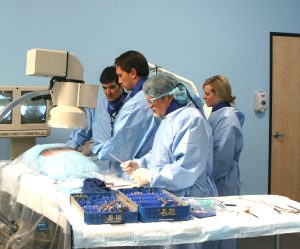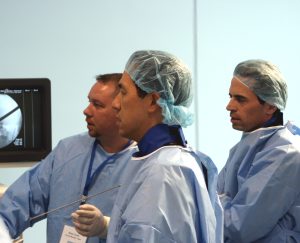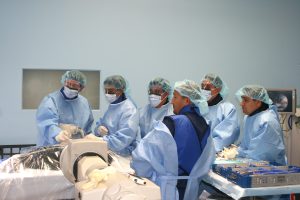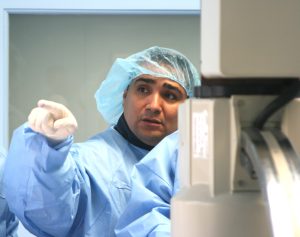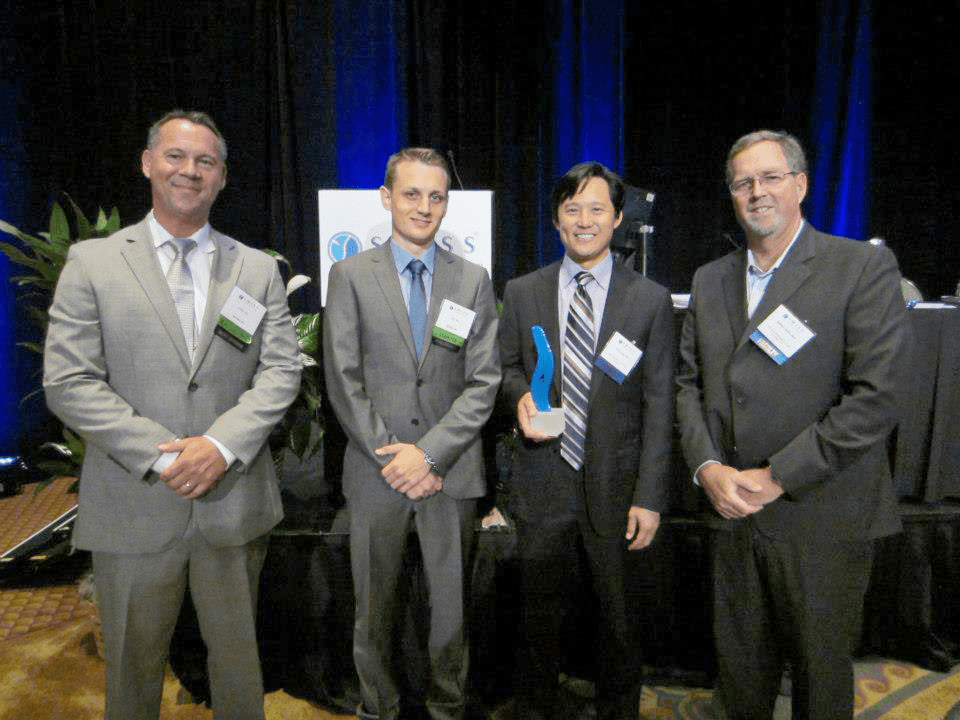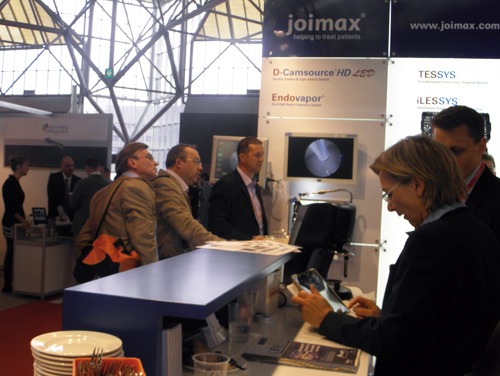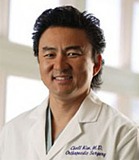Karlsruhe, 12th April 2013. April is the month of international workshops for joimax® – with its holistic Education Program and 4 cadaver workshops in total in the US and Germany the leading provider of instruments and techniques for minimally invasive endoscopic spine surgery starts into spring.
The starting signal sounded on 5th April in Irvine, California, where the subsidiary joimax®, Inc. is located. The two-day cadaver lab attended by 10 surgeons at the Advanced Med Institute let the spine physicians from around the United States experience the joimax® TESSYS® (Transforaminal Endoscopic Surgery System) surgery technique for the endoscopic access to the spinal column step-by-step. Reference surgeon Dr. Carl Spivak, neurosurgeon at Bassett Hospital Cooperstown in New York, talked about the anatomy of the lumbar spine, the transforaminal access to the vertebral canal and suitable indications. During the wet lab hands-on session on 3 workstations the surgeons were able to intensively try and train the minimally invasive operation technique for the treatment of disc herniations and spinal canal stenosis. „The technical performance of the joimax® procedure and the approach to the pathology have impressed me. After the workshop I feel very comfortable expanding my indications and applying endoscopy for the spine“– that’s what stated one of the attendees.
A real highlight of the spring education initiative is the first joimax® balloon-kyphoplasty workshop on 12th April at the Clinic for Accident, Hand and Restorative Surgery at the UKGM in Gießen, Germany. Besides interesting scientific presentations on balloon-kyphoplasty and osteoporosis therapy, the workshop’s main focus lies on the practical training of this minimally invasive surgical technique for the gentle treatment of vertebral fractures. Under the guidance of the instructors Professor Christian Heiß, Associate Professor Dr. Wolfgang Böcker and Dr. Markus Engelhardt their experiences and expert knowledge will be directly transferred to the 8 attendees.
The end of this training-intensive month forms an exclusively held workshop for a Chinese group of physicians at the University Medical Center of the Johannes-Gutenberg-University in Mainz, Germany. Under the guidance of Dr. Michael Schubert (Munich) und Dr. Guntram Krzok (Friedrichroda), the top delegation of 6 spine specialists from China will receive phase-on training on how to perform endoscopic spinal surgeries using the specific transforaminal and interlaminar joimax® access and decompression procedures.
Particularly exciting for the joimax® Faculty is 14th April when the already 5th international User Meeting will be hosted right after the Chinese Workshop. Here, the brand new joimax® products will be presented on the anatomical specimen – starting with CESSYS® (Cervical Endoscopic Surgical System) for the therapy of herniated discs on the cervical spine through to the next generation of TESSYS® with the quick FastTrack-access. Specifically designed for experienced users, the fine-tuned FastTrack surgical instruments allow for the transforaminal acces to the spinal canal in fewer steps. A very special highlight is, however, the EndoLIF® System (Endoscopic Lumbar Interbody Fusion) for spinal stabilisation, which is going to be presented for the first time. Various cage technologies and spinal implants have been designed specifically for the minimally invasive endoscopic lumbar spine fusion procedure; the access to the disc space is based on the well-proven TESSYS® and iLESSYS®-systems – thus this is the world’s first fusion procedure under endoscopic view.
You can find all workshop dates for 2013 at p478114.webspaceconfig.de/en/doctors/education
